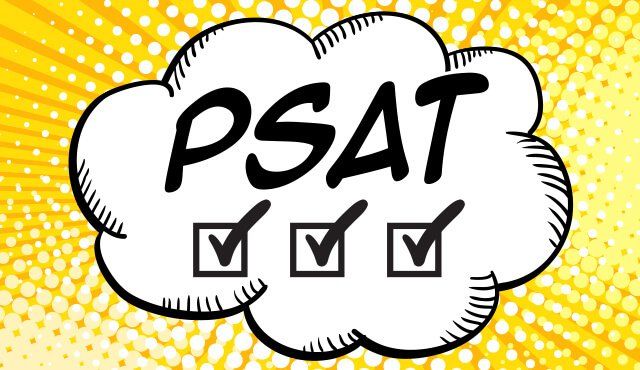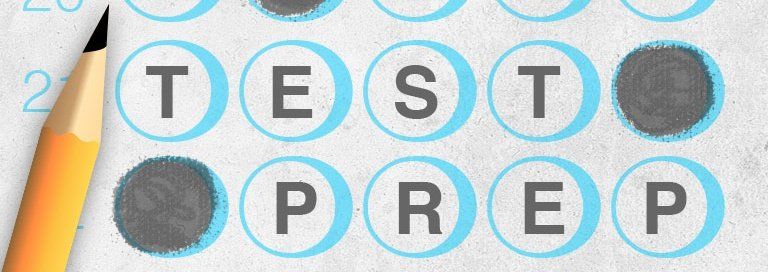This page is licensed under Creative Commons under Attribution 4.0 International. Anyone can share content from this page, with attribution and link to College MatchPoint requested.
Get in touch
Posts tagged Testing

By Josh Neimark
•
01 Feb, 2024
Didn't get the news you hoped for from UT Austin? The University of Texas at Austin just saw record-breaking undergraduate applications, with a whopping 73,000 students vying for a spot. That's a 20% jump from previous years, making UT Austin more popular than ever. For students not automatically admitted (based on Texas high school rank), the overall acceptance rate will be only 11%. Some majors, like computer science, business, engineering, and nursing, will be even more competitive. While their admissions decisions are tough to overturn, an appeal might be worth considering if you have new, significant information that wasn't in your original application. But before you dive in, understand the process and your chances.

By Bob Carlton
•
25 Oct, 2023
PSAT scores were just released for 11th and 10th graders - what's next for your high schooler? As a parent, view this as helpful feedback to guide strategic prep, not cause stress. Analyzing the results closely highlights your student's strengths and areas needing improvement. Use these insights to pick targeted practice resources and determine if the SAT or ACT aligns better with their skills. For 11th graders, outstanding PSAT performance can unlock National Merit Scholarship opportunities. For 10th graders, it provides an early skills assessment to build on over time. Beyond just practice, this diagnostic score equips all students to tailor prep and maximize future test success. With thoughtful follow-up, they can leverage these results to excel when it really counts.

03 Jan, 2023
Top colleges evaluate candidates using a holistic review, which means they consider every aspect of the application, from test scores to extracurricular involvement to special accomplishments–and everything in between. By evaluating a student’s application from a holistic perspective, the college gets to know applicants as people, not just numbers. Here’s what admissions officers at highly selective colleges are looking for in their holistic review:

By Josh Neimark
•
03 Oct, 2022
This week, millions of high school sophomores and juniors took the PSAT. Now what ? PSAT score report contains a total score, section scores, percentiles and question-level feedback. A student’s percentiles help gauge where they stand compared to all other students who took the test. The total and section scores allow students to judge general areas of weakness, as well as proximity to a student’s target scores. Our friends at Compass Prep have some insights into how to use the PSAT experience to your advantage, which we'll outline below.

By Josh Neimark
•
30 Sep, 2022
Each year, families consider whether to have their students work with a tutor to prep for the ACT or SAT. Our partner Megan Watkins at Endeavor Academics shared some issues to consider: Ideally, families would be able to meet several tutors, try them out, and make an informed decision. But picking a tutor isn’t always that straightforward. So how should you go about choosing a tutor?

By Josh Neimark
•
27 Aug, 2022
Creating a testing plan can be overwhelming, particularly given colleges’ ever-changing standardized testing requirements. If you add in having to navigate the accommodations process, it can be hard to even know where to start. We hope that these five suggestions our colleague Megan Phillips at Endeavor Academics will help guide you. WHICH TEST IS THE BEST FIT? Colleges are equally happy to accept the ACT and the SAT, so it’s wise to pick one test and focus on mastering it. We like to compare it to training for two sports. If you are a great athlete and in great shape, you can definitely excel in two sports. If you focus on one, you are likely to get even better. You may be wondering how to decide between the exams. We always recommend taking a practice exam of each to compare using data rather than choosing based on a hunch. Even as testing experts we are sometimes surprised by which test a student does best on initially. Here are links to practice tests for the ACT and SAT . Both were written by the testing companies, so they will give you reliable scores. We recommend printing them and taking them with pencil and paper to reflect how students will take the real exam. We also recommend adjusting the timing to reflect the accommodations your student receives in school, particularly if they have been using extended time for more than a year (see suggestion five below for more details). Once you have both scores, you can use the concordance scales here to determine which is a better fit. When scores end up being very similar, we recommend that students go with the test that feels like a better fit to them. Much of the success that students have comes from practice and confidence. If they choose the exam, they are more likely to practice and already have built-in comfort based on their preference for that test. WILL YOUR STUDENT BE TAKING ALGEBRA 2 AS A JUNIOR? If so, we recommend waiting to test until they have a semester of that class under their belt. Having that content knowledge makes a big difference when they tackle the math sections of these exams. If they have already taken Algebra 2, you can start earlier! Many students prefer to make the most of the summer prior to their junior year so that they can knock out testing earlier. It’s always ideal to be done testing before the following summer so that you can spend those months before senior year focused on college applications. Either way, we recommend testing for the first time by early spring (and beginning to prepare in the fall semester) to allow your student the chance to test a few times if necessary. HOW TIME CONSUMING ARE YOUR EXTRACURRICULAR COMMITMENTS? Many students are deeply involved in activities, commitments, and projects outside of school. Don’t forget to consider how those busy seasons will affect your student’s ability to prepare to the best of their ability. A student may be prepared academically to test in the fall, but if they are on the football or dance team their practice and game schedules will likely make preparation and testing more difficult. WHAT TYPE OF LEARNER ARE YOU? We have found that students often fall into two categories: those who excel at a sprint and those who perform better if they pace themselves over a longer period of time. Frequently, the adults in their lives have a good sense of which groups their students fall into. Play to your student’s strengths! If your student can buckle down and focus intensely for a short period of time but loses steam quickly, consider that as you plan and schedule their preparation. They are unlikely to do well with a plan that extends for months and months and will certainly fatigue if they prep for an entire year. Students like this often do well with an intense period of preparation right before the school year starts as long as they have had enough math to be ready to test. We have found this to be especially true for many of our students who are twice exceptional. If, on the other hand, you know that your student benefits from repetition and time to process (this is many of our students with learning differences!), consider choosing a longer course and scheduling only one shorter tutoring session a week to give them time to practice and prepare in between. Spread their preparation over the course of several months to maximize their gains. Either way, plan to hold three testing dates available on your calendar in case your student chooses to test several times. Some students meet their goals on their first exam. Others have first test jitters and will do better once they have a second chance and know what to expect.

"College MatchPoint helps steer and advise you from beginning to end of the college search and application process. They take what can be a very stressful time and break it down into smaller, manageable pieces. Bob, Lisa and their staff support their student clients, enabling them to find the best fit. You can trust that the process will work; it did for all 3 of my very different kids."
— Ellen Miura
Subscribe
Sign up with your email address to receive news and updates.
Email signup
Thank you for contacting us.
We will get back to you as soon as possible.
We will get back to you as soon as possible.
Oops, there was an error sending your message.
Please try again later.
Please try again later.
© 2024
ALL RIGHTS RESERVED | COLLEGE MATCHPOINT | SITE BY FIX8





